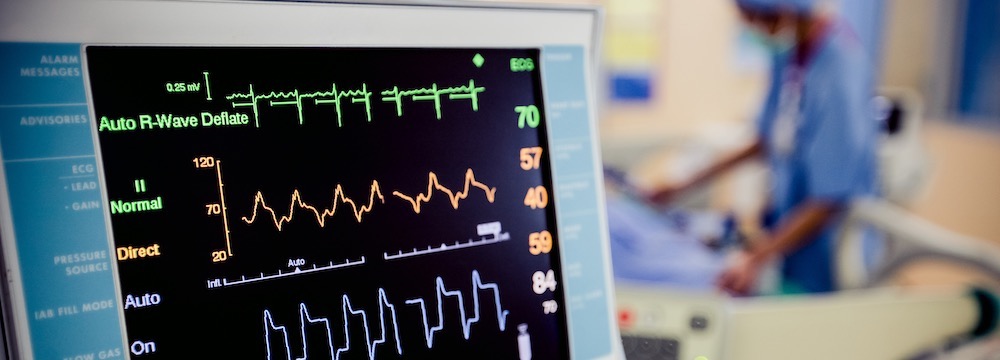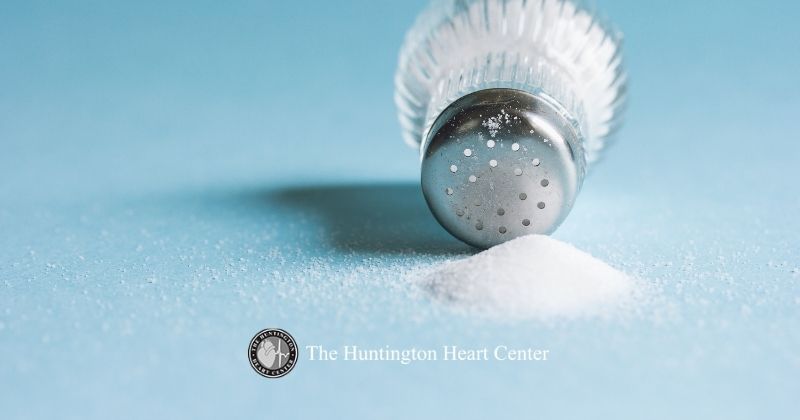Welcome to Huntington Heart Center Blog
Red Meat and Its Effects on the Heart
It’s a staple at virtually every American barbecue and get together – steak, burgers…red meat. In fact, Americans consume so much red meat that it is a contributory factor to the heart disease that we, collectively as a society, suffer from. But how exactly does red meat affect the heart and what do we need to do to help?

Red meat is very high in saturated fat. These are the bad fats that can eventually lead to heart disease. This is especially true for heavily marbled cuts. However, it is not only the composition of the red meat that matters, but it is also the portion sizes that we have become accustomed to. It’s rare to find a slab of meat weighing in at less than 8 ounces in a restaurant today. Be mindful that 3 to 4 ounces is a normal portion of protein. So even with the smallest steak on the menu, we are staring at double the amount of meat we should be eating.
My EKG Says I’m Fine, but My Heart Feels Like It’s Pounding Out of My Chest
As specialized cardiologists, we encounter a common concern where patients do not seem to receive a definitive diagnosis, but are convinced they have a cardiac arrythmia or irregular heartbeat. To be sure, there is a possibility that the worry is psychosomatic. However, arrhythmias are often difficult to diagnose without specialized tools that a typical primary care practice would not have.

As patients get older, an EKG or electrocardiogram test becomes standard at each physical. After all, the primary risk factor for arrhythmias is age. However, not all arrhythmias are linear. In fact, early on, arrhythmias are often paroxysmal or occasional. Paroxysmal arrhythmias may occur at varying times and there is often no discernable pattern of onset. However, EKGs can only detect an arrhythmia at the time the test is being performed. Think of the EKG as a snapshot in time that would have to coincide exactly with when the patient is having the arrhythmia.
Smoking and Its Effects on the Cardiovascular System
There’s no shortage of information regarding smoking and your health. Not only do cigarette packs let you know how bad it can be, but there’s no shortage of anti-smoking and smoking cessation ads on TV and elsewhere. Most of the messaging revolves around the very clear and outward signs of smoking including lung cancer and breathing problems such as COPD. However, smoking also wreaks havoc on the circulatory and cardiovascular system.

When you dig a little deeper and learn more about how smoking affects the cardiovascular system, you can immediately see why it is so detrimental.
Wearable Tech – Useful Diagnostics or A Detriment?

With the advent of the latest generations of Apple Watch, wearable technology has taken a huge leap forward. Until the past few years, wearables, especially in the form of a portable EKG was not only extremely expensive but was only available from your cardiologist or medical team. On the surface, it seems as though these new technologies can only add to our health picture; however, it is important that we delve deeper into the issue to understand whether wearables are truly useful or if they make our lives more complicated.
Meditation, Mindfulness and Your Heart Health

With heart disease as the leading killer of adults, both male and female, in the United States, we must be aware of its consequences and develop ways to prevent it. Of course, improved diet and exercise as well as proper screening is critically important to improving both overall health and the function of your heart. And while our jobs and lives may require it, stress has truly gotten out of control. Indeed, our bodies are naturally programmed to experience stress, just not at the sustained levels that we do today.
Stress is at the core of a very important fight or flight reaction. Prior to the modern comforts that we enjoy, humans needed to escape threats on a regular basis. The fight or flight stress response allowed hormones and chemicals to be released into the body that increased our focus and power to escape the potential harm. Today, that response permeates large swaths of our lives, whether it is at work or at home, due to stress.
Artificial Sweeteners vs Sugar – The Effects on Heart Health

When artificial sweeteners were first introduced, they represented a potentially revolutionary change in how we eat and drink. As our diets have worsened, one of the biggest culprits is increased sugar intake. Today men and women alike consume far more sugar than we should each day and this has led to a rise in obesity rates to epidemic proportions. Along with obesity comes a host of follow-on cardiovascular disorders including type two diabetes, high blood pressure, high cholesterol and more. Any of these issues can cause long-term heart damage up to and including a higher risk of heart attack and stroke and even long-term heart failure.
Does Omega-3 Supplementation Improve Heart Health?

It is well known that omega-3 fatty acids, a type of polyunsaturated fat, are critical for the function of many of our cells around the body, including in the brain. The benefits of omega-3 fatty acids extend to the heart and are protective against stroke as well. While we know this to be the case, there is some debate as to whether Omega-3s consumed as part of a healthier diet are any better than simply supplementing with one of the myriad pills available today.
Omega-3s have shown several benefits including lowering bread pressure, reducing triglycerides in the blood, reducing the risk of heart arrhythmias, reducing the risk of heart attack and stroke and lowering the risk of sudden cardiac death amongst other benefits.
Can Afib Ablations Be Performed More Than Once?
Cardiac catheter ablation is one of the most powerful tools in an electrophysiologist’s armament of tools. But to understand the potential outcomes after an ablation, we need to explore what exactly and ablation entails.

Cardiac catheter ablation involves the threading of a long, thin catheter from a small incision in the groin into the heart. The tip of the catheter has a mapping system that shows the Electrophysiologist the structures of the heart and the electrical patterns and signals emanating from the heart. This mapping system can accurately detect any abnormal heart rhythms, also known as arrhythmias. The cardiac catheter ablation procedure is relatively straightforward and very safe. However, as with any medical procedure, results vary between patients and there may be the possibility of having a second catheter ablation if the first does not completely resolve the arrhythmia issue.
Concerning Study Results Linking Cannabis Use to Increased Risk of Heart Attack
A recent retrospective study of 30,000 young adults between the ages of 18 and 44 has raised alarm bells about the use of cannabis products and an increased risk of heart attack and even stroke. Cannabis products are those that contain the psychoactive component of marijuana – THC. As marijuana has been legalized around the United States, its uses have proliferated. Further, new formulations and strains of these products have made them exponentially more potent than the products that were common just a few decades ago. This has resulted in several potential concerns.
How Salt Affects Your Blood Pressure
Before you reach for that salt-shaker at the dinner table, you might want to know what that extra sodium does to your blood pressure and overall heart health. Did you know that the daily recommended amount for salt is only about one teaspoon or less? And that it is likely already incorporated into your food without the assistance of a few shakes of salt? It is time to assess your salt intake and modify it to best suit your heart health.









